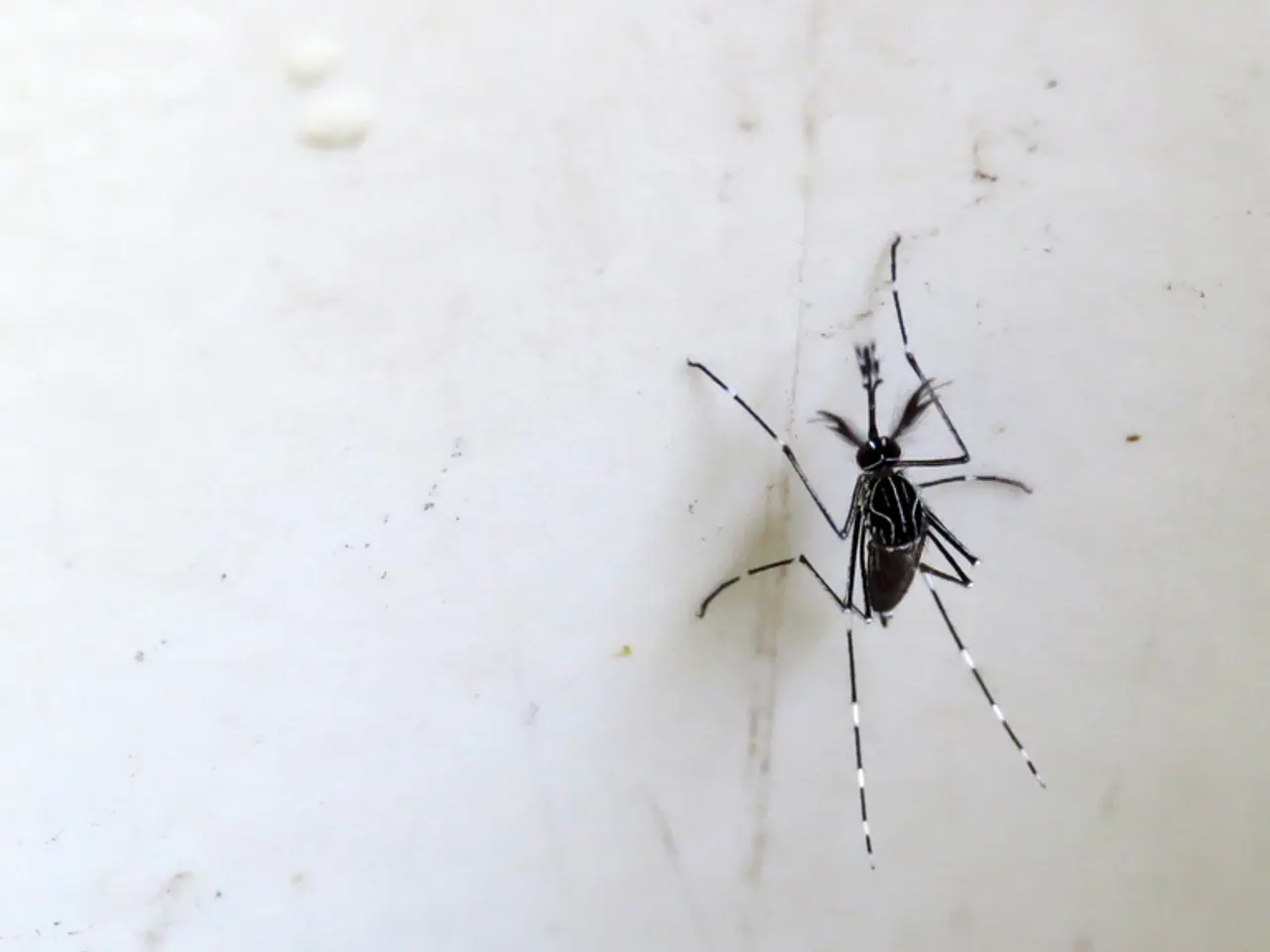Zika Virus Explained: An Overview
The Zika virus, a mosquito-borne disease belonging to the flavivirus family, is primarily found in tropical and subtropical regions, with areas in South America, Central America, and parts of the Caribbean remaining at risk as of 2025. This virus can cause a range of health issues, particularly for pregnant women and their unborn children.
Aedes mosquitoes, such as Aedes aegypti and Aedes albopictus, are the primary carriers of the Zika virus. These mosquitoes breed in stagnant water, making areas with standing water a higher risk for transmission. To prevent Zika, it's essential to eliminate standing water around your home, use EPA-registered insect repellents, wear protective clothing, and use screens and mosquito nets. If traveling to Zika-affected areas, it's advisable to use insect repellent containing DEET, picaridin, or oil of lemon eucalyptus.
Common symptoms of Zika virus infection include fever, rash, joint pain, conjunctivitis, and headache. Although rare, the virus can also be transmitted through sexual contact, mother-to-child transmission, and blood transfusions. Pregnant women are at risk of passing the Zika virus to their unborn child, which can lead to serious birth defects, including microcephaly, hearing problems, vision problems, and impaired growth. If pregnant and experiencing symptoms of Zika, it is essential to consult a healthcare provider immediately.
If you suspect you have been infected with the Zika virus and experience any of the symptoms mentioned, it is essential to consult a healthcare provider. Treatment primarily focuses on relieving symptoms, with recommended approaches including rest, hydration, and the use of over-the-counter medications like acetaminophen (Tylenol). Regular testing and monitoring throughout pregnancy can help ensure the health of the baby if the mother has been exposed to the Zika virus.
The long-term impact of antenatal Zika infection is still being studied. Babies born to mothers infected with Zika virus during pregnancy can suffer long-term effects including congenital Zika syndrome (CZS), characterized by microcephaly (abnormally small head and brain), severe brain malformations, and other developmental disabilities affecting cognitive, language, and motor skills. Some infants without obvious symptoms at birth may develop microcephaly or neurodevelopmental issues later in life. Overall morbidity and mortality rates among children with CZS are notably high, and even babies exposed in utero without clear syndrome manifestations remain at risk for developmental disorders.
In addition to the risks for infants, Zika virus infection during pregnancy can also lead to other pregnancy complications such as fetal loss, stillbirth, and preterm birth. Neurological complications such as Guillain-Barré syndrome, encephalitis, meningitis, or myelitis can occur in infected individuals, but these are more rare and not restricted to infants.
The long-term effects on babies include severe and persistent neurological deficits, increased mortality, and potential delayed-onset developmental problems even if infants appear healthy at birth. Regular follow-up appointments may be necessary for individuals diagnosed with Zika to monitor symptoms and potential complications, particularly for pregnant women.
There is currently no specific antiviral treatment for Zika virus infection. If you have traveled to a Zika-affected area, it's advisable to wait a certain period before donating blood to avoid transmitting the virus through blood transfusions. Avoiding non-steroidal anti-inflammatory drugs (NSAIDs) like ibuprofen and aspirin, especially in the case of co-infection with dengue, is important.
In conclusion, the Zika virus poses a significant risk, particularly for pregnant women and their unborn children. By understanding the symptoms, transmission methods, and preventive measures, individuals can take steps to protect themselves and their families from this potentially devastating disease.
- The medical-conditions associated with Zika virus infection, such as microcephaly and congenital Zika syndrome, can have long-term effects on babies and require regular follow-up appointments for monitoring.
- To maintain health-and-wellness and prevent the transmission of Zika, it's important to eliminate standing water around the home, use EPA-registered insect repellents, wear protective clothing, and use screens and mosquito nets, especially when traveling to Zika-affected regions.




